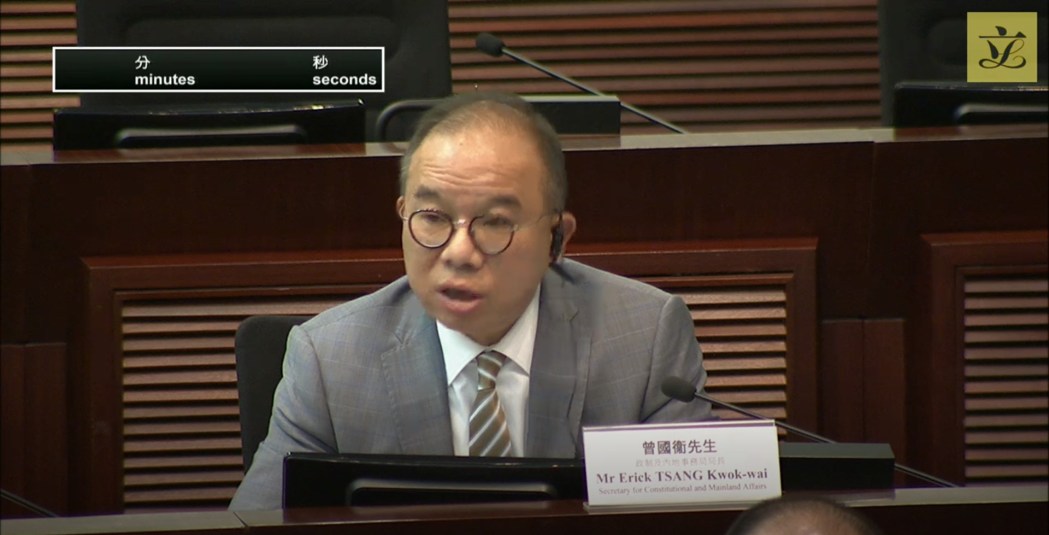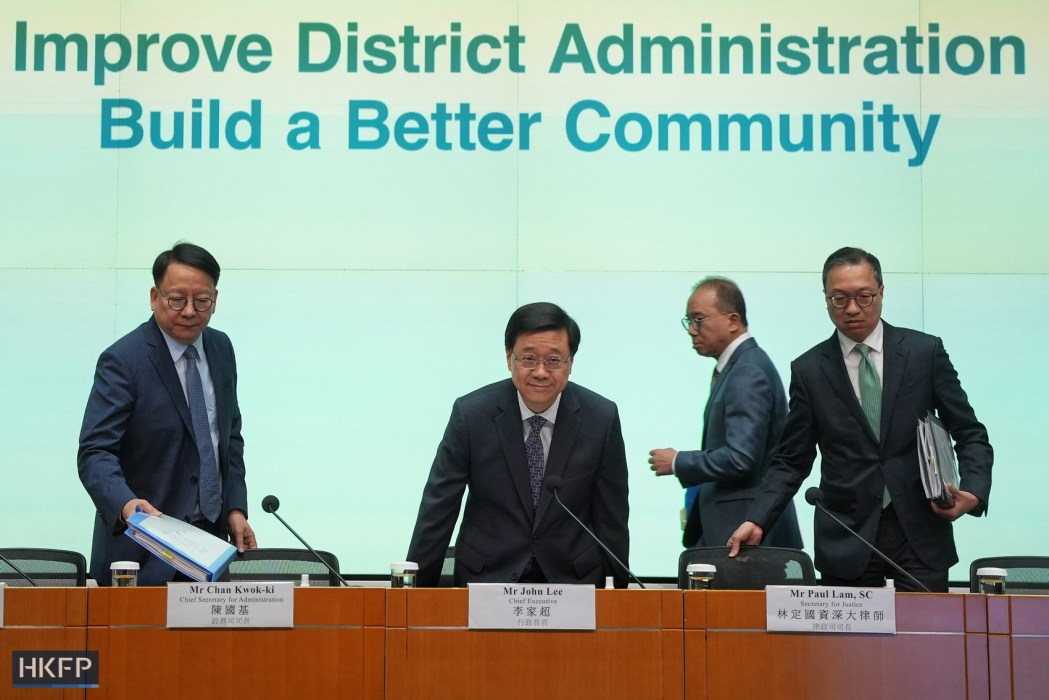To claim that Hong Kong’s District Council reforms are related to the city’s democratic progression are a “complete misinterpretation” of the city’s mini-constitution, a top government official told the Legislative Council on Friday morning.

Under the government’s proposed changes, democratically elected seats at District Councils will be slashed to around 20 per cent, whilst constituencies will be redrawn and candidates will face national security background checks. About 40 per cent of the seats will be directly chosen by the chief executive.
Speaking at the first legislative panel discussion about the government’s plans to revamp the local elections, Secretary for Constitutional and Mainland Affairs Erick Tsang said the Basic Law did not lay out how District Councils should be formed, adding that it only states that the chief executive and the Legislative Council should be elected.
The official said it meant that it was not necessary for the local administrative bodies to be generated by elections, or universal suffrage.
“Therefore, any talk about elements of democracy, or talk about linking District Councils to the Special Administration Region’s democratic progression, are complete misinterpretations of the original intention of the Basic Law, muddling up different concepts…” Tsang added.
Trust in the public
During Friday’s meeting, Aron Kwok, a lawmaker for the pro-Beijing Hong Kong Federation of Trade Unions, said there were voices in society claimed the proposed restoration of appointed seats suggested “we do not trust in the public.”
The legislator went on and said that “of course, we know this is a misleading and wrong concept.”
Addressing Kwok’s speech, Tsang said the main purpose of the electoral reform was to introduce “good governance,” adding that “everybody knows good governance is not directly or necessarily related to direct elections.”
Meanwhile, the official said that, as a certain amount of seats under the proposed changes will remain democratically elected, “it demonstrates that we still believe that people’s choices are necessary.”

Tsang said the proposed overhaul was to prevent a repeat of past experiences when “immoral politicians were chanting empty slogans, politicising different issues, inciting and instigating the public to secure council seats.”
The local election overhaul came after pro-democracy candidates won by a landslide during last polls amid the 2019 protests and unrest.
Serving District Councillors have told HKFP that they felt the reforms would “destroy the final bastion of democracy” or go against the original intention for District Councils to bring forth “bottom-up” policies.
Renaming suggestions
Both Kwok, and another lawmaker Tommy Cheung, suggested renaming the District Councils during the meeting.
Kwok said the government should use the old colonial-era name, “District Boards,” to show that they will be going back to their “founding mission.” Cheung said their Chinese names should be changed to “Regional District Advisory Council.”
But their suggestions were turned down by Tsang, who said the name “District Council” was already “deeply rooted in people’s hearts.”
Support HKFP | Policies & Ethics | Error/typo? | Contact Us | Newsletter | Transparency & Annual Report | Apps
Help safeguard press freedom & keep HKFP free for all readers by supporting our team

LATEST FROM HKFP
HKFP has an impartial stance, transparent funding, and balanced coverage guided by an Ethics Code and Corrections Policy.
Support press freedom & help us surpass 1,000 monthly Patrons: 100% independent, governed by an ethics code & not-for-profit.










